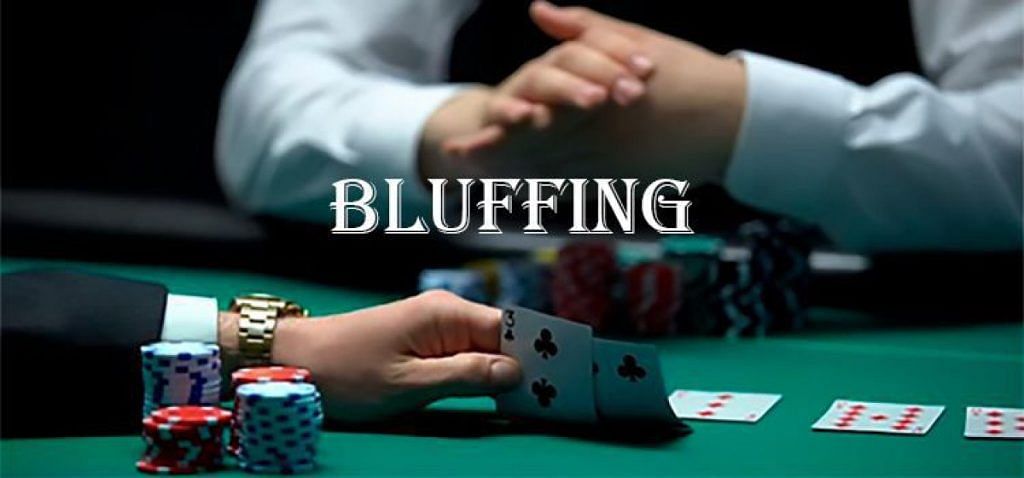Gaining expertise in Texas Hold’em poker goes far beyond than just understanding the basic rules. You need tactics that check all the boxes right along with clear insight of potential pitfalls. Many players, irrespective of the experience they hold, tend to fall prey to classic blunders which can throw off their game and can eat their chip count. From overplaying strong cards to not emphasising on the importance of position, avoiding these mistakes might give you an edge.
10 Common Texas Hold’em Poker Mistakes That Cost You
Herein, we will explore the top 10 mistakes players are bound to make in Texas Hold’em and how you can stay away from them and play at a higher level.
Mistake 1: Overvaluing Hands
One prevalent mistake is thinking your initial cards are better than they are. It’s easy to feel invincible with pocket Aces or Kings, but the game doesn’t stop there. The flop, turn, and river—these community cards—can change everything. Initially, strong hands can weaken as new cards appear and opponents reveal their tactics through wagering.
The key is to remain adaptable. Don’t stick to a hand just because it started strong. Pay attention to everything happening around the table. Look at community cards and how opponents are wagering.
Remember that players can also overvalue their hands based on their opponents’ wager patterns and the overall context of the game.
This broader focus lets you understand when it’s wise to hold or fold. It’s less about the card value and more about the context—and keeping emotions in check. Your wallet will thank you for it.
Mistake 2: Ignoring Position
Your position at the table is crucial in determining the power of your hand. Players acting later in a round can observe their opponents’ moves. This provides extra information to decide whether to be aggressive or play it safe.
Being in an early position can limit your options. You’re acting without knowing your opponents’ intentions, which can be risky if you’re too aggressive. But if you’re in the later positions, you have the advantage of insight, allowing you to make well-informed decisions.
Players in late positions can leverage their knowledge of other players’ actions to better evaluate their own hand strength relative to potential outcomes.
Balancing your strategy based on your seating can improve your odds of winning hands. Remember, sometimes the correct position makes a mediocre hand much more reliable.
Related Read: Texas Hold’em Poker: 5 Key Rules & Hand
Mistake 3: Bluffing Too Much

Bluffing can be thrilling—it’s pure drama at the poker table. But do it too much, and you become predictable. The secret to a successful bluff is not just about trying to deceive others but choosing the right moment and opponent.
A well-timed bluff should be a rare tool in your strategy, used when the situation suggests it could work. If your bluffs are too frequent or prominent, opponents catch on, making your play less effective.
Effective Poker bluffing also depends on the overall game dynamics, such as the table image a player has established.
Study your opponents. Are they easily scared off, or do they tend to call bluffs? Use this knowledge to your advantage. Effective bluffing is about creating doubt while keeping everyone guessing.
Mistake 4: Playing Too Many Hands
In poker, it might seem logical to play more hands to increase your chances of winning, but the truth is quite different. The key is how many hands you play and how well you choose them.
Experienced players focus on playing fewer but stronger hands, waiting for good opportunities to put money in the pot. By picking the right hands—those that have a higher chance of winning—you conserve your chips and increase your financial gains in the long run. Resist the urge to chase after unlikely wins.
The tight-aggressive style is often more effective in professional play, which is why fewer, stronger hands are generally favoured.
It’s about patience and discipline, not becoming too attached to each hand you play.
Mistake 5: Neglecting Pot Odds
Pot odds are the ratio of the current size of the pot to the size of the bet you must call. Understanding pot odds can indicate whether your call is mathematically sound. If you’re seeking a card that will complete your hand, compare the potential reward with the cost of the bet.
Calculating pot odds provides clarity, making it easier to decide if continuing with a hand is worthwhile.
Providing a more explicit example or calculation could clarify how to determine if a call is justified based on pot odds.
Don’t ignore this aspect; it bridges the gap between luck and calculated risk. Make pot odds a routine part of your decision-making process for more strategic gameplay.
Mistake 6: Emotional Play (Tilt)
Letting emotions control your decisions in poker is known as going “on tilt.” Whether it’s anger after a losing streak or overexcitement after a big win, emotions can cloud your judgment.
Recognising emotional triggers is a vital step toward combating them. When you feel emotions taking over, take a break and clear your mind. Meditation, breathing exercises, or a quick step away from the table helps reset your mental state. Specific strategies can be employed to identify signs of tilt beyond just taking a break.Keeping a rational mindset ensures that decisions are based on strategy, not emotion, leading to better outcomes.
Mistake 7: Inadequate Bankroll Management

Without carefully managing your poker funds, you risk losing everything in a few poor decisions. Setting limits on how much you’re willing to lose in a session and sticking to them helps maintain long-term play.
Bankroll management means having a separate poker fund not tied to personal or essential expenses. This separation is crucial for ensuring that the ups and downs of poker don’t impact your daily life. You’ll continue to play comfortably, knowing that your finances are secure.
It’s important to have a bankroll management strategy tailored to different stakes and game types, which is crucial for long-term success. You’ll continue to play comfortably, knowing that your finances are secure.
Also Read: 10 Expert Tips to Become a Poker Expert: Level Up Your Skills
Mistake 8: Ignoring Table Dynamics
Each poker table has its atmosphere and rhythm. Some players are aggressive, others are conservative, and being able to read these dynamics can significantly impact your strategy.
Observe how each player behaves. Are they bluffing often, or are they more cautious? Use this information to adapt your play. Recognising specific player types (e.g., aggressive, passive) can help in adapting strategies effectively.Flexibility in your approach allows you to counter opponents and exploit openings effectively. Don’t approach every table with a one-size-fits-all strategy; tailor your gameplay to the current environment.
Mistake 9: Not Protecting Your Hand
When you have a strong hand, it’s essential to play in a way that protects it from potential threats. If the board shows possible draws for opponents, raising the stakes may force those on weaker hands to fold.
This protection is essential for maintaining your hand’s strength.
“Protection” also involves understanding the potential for opponents to complete their draws.Playing aggressively and confidently reduces opponents’ chances of catching lucky cards to beat you. Even strong hands need protection to maintain their value and power.
Mistake 10: Repetition of Predictable Patterns
Using the same wagering strategies repeatedly makes you an easy target. Opponents quickly catch on and exploit your predictable behaviour.
Mix up your game by varying your bet sizes and strategies. Keep opponents off-balance by being unpredictable. It’s also important to balance aggression with passivity to keep opponents guessing. This makes it tough for them to know your strengths, ultimately enhancing your position.
Frequently Asked Questions (FAQs) about Common Issues of Players
Texas Hold’em differs from other poker variants in its structure: each player receives two personal cards (hole cards) and shares five community cards across the table. This setup emphasises strategic depth and the significance of positional awareness.
Unlike games where all cards are private, Hold’em requires you to interpret and anticipate shared-card dynamics, integrating them into your strategy. The community cards create opportunities for building solid hands but also necessitate adapting to constantly shifting board textures, making it a game heavily reliant on tactical judgment.
In Texas Hold’em, hand selection is crucial as it is the backbone of your overall strategy. Selective play, focusing on stronger hands rather than indiscriminately entering pots, leads to statistically advantageous outcomes. This disciplined approach minimises unnecessary risks and helps conserve your chips when the odds are more in your favour.
Understanding which hands are worth investing in and which should be folded ensures you remain competitive throughout the game, maximising long-term success while avoiding precipitous losses.
In poker, ‘position’ refers to your seat’s proximity to the dealer button, determining the action order during the rounds. Being in a later position is generally advantageous because it allows you to observe your opponents’ actions before making a decision.
This insight provides a strategic edge, enabling more informed decisions based on additional information about your opponents’ intentions. Control over when and how assertively you act can vastly affect your profitability, allowing you to manipulate pot size or exploit opponents’ weaknesses effectively.
Avoiding the temptation to play many hands is wise in Texas Hold’em, given that focusing on fewer but statistically stronger hands increases your chance of winning. By conserving your chips, you can invest them more strategically, engaging only when you have a significant edge over your opponents.
This selective approach reduces speculative risks associated with weaker hands, often requiring more effort and luck to win. It promotes a solid, sustainable game plan where decisions are driven by calculated advantages rather than impulsive participation.
Determining when you might be overvaluing a hand involves assessing the broader context beyond just the initial strength of your cards. Pre-flop advantages, such as high pairs or suited connectors, can erode if community cards fail to complement them.
Being mindful of opponents’ wagering patterns is critical to recognising when your once-powerful hand may no longer be the best. By carefully analysing the community cards and surrounding table actions, you can avoid costly misconceptions and decide when to proceed aggressively or step back.
Adaptability is critical to maintaining a competitive edge in poker.Handling these common mistakes in Texas Hold’em requires practice and insight. Avoiding these pitfalls sharpens your skills and makes the game more rewarding. Each hand becomes a learning opportunity, transforming errors into expertise over time. Keep refining your strategy, and enjoy the game at a deeper level.
Star it if you find it helpful.

